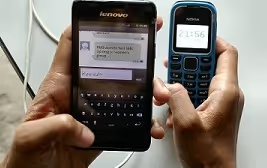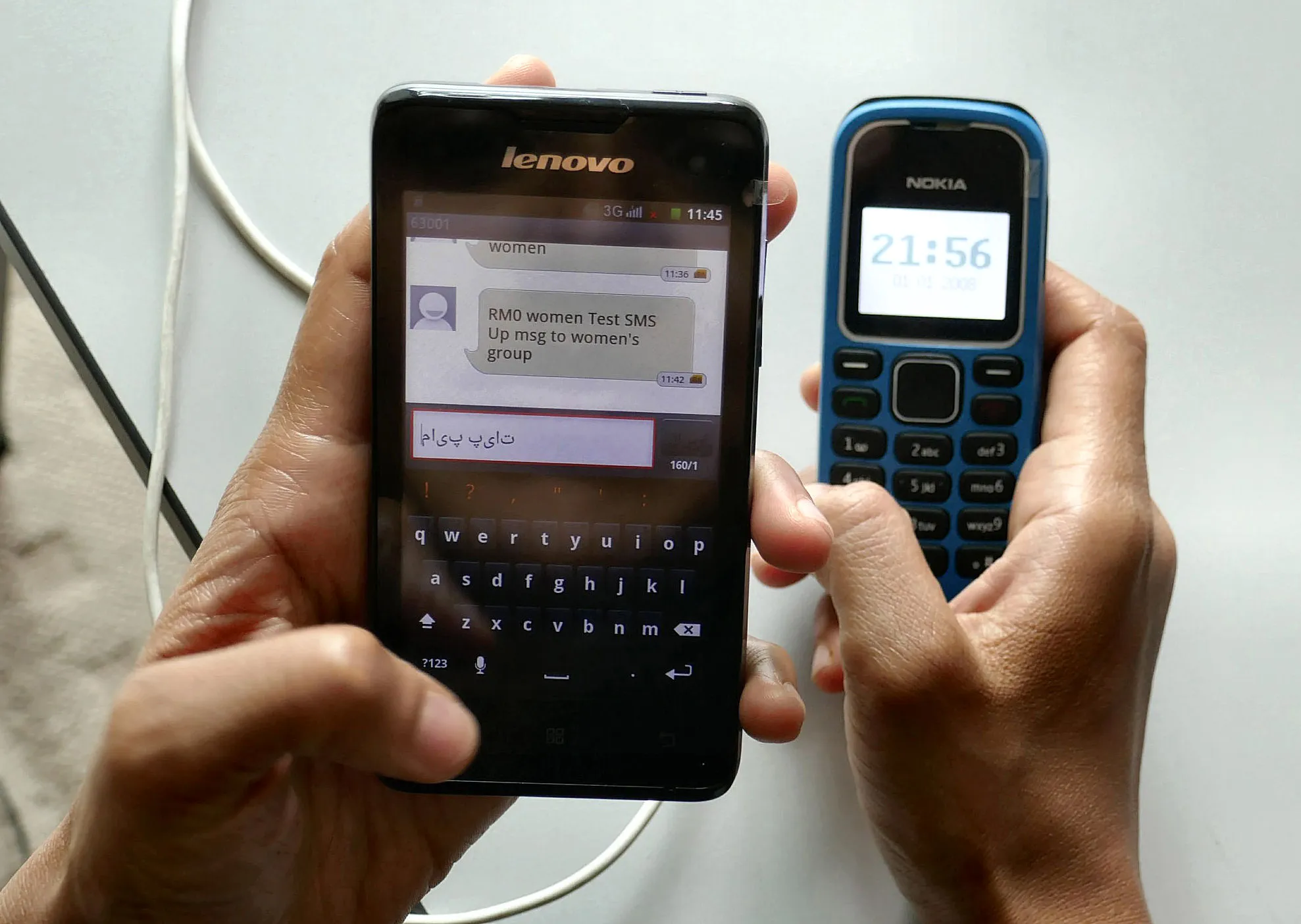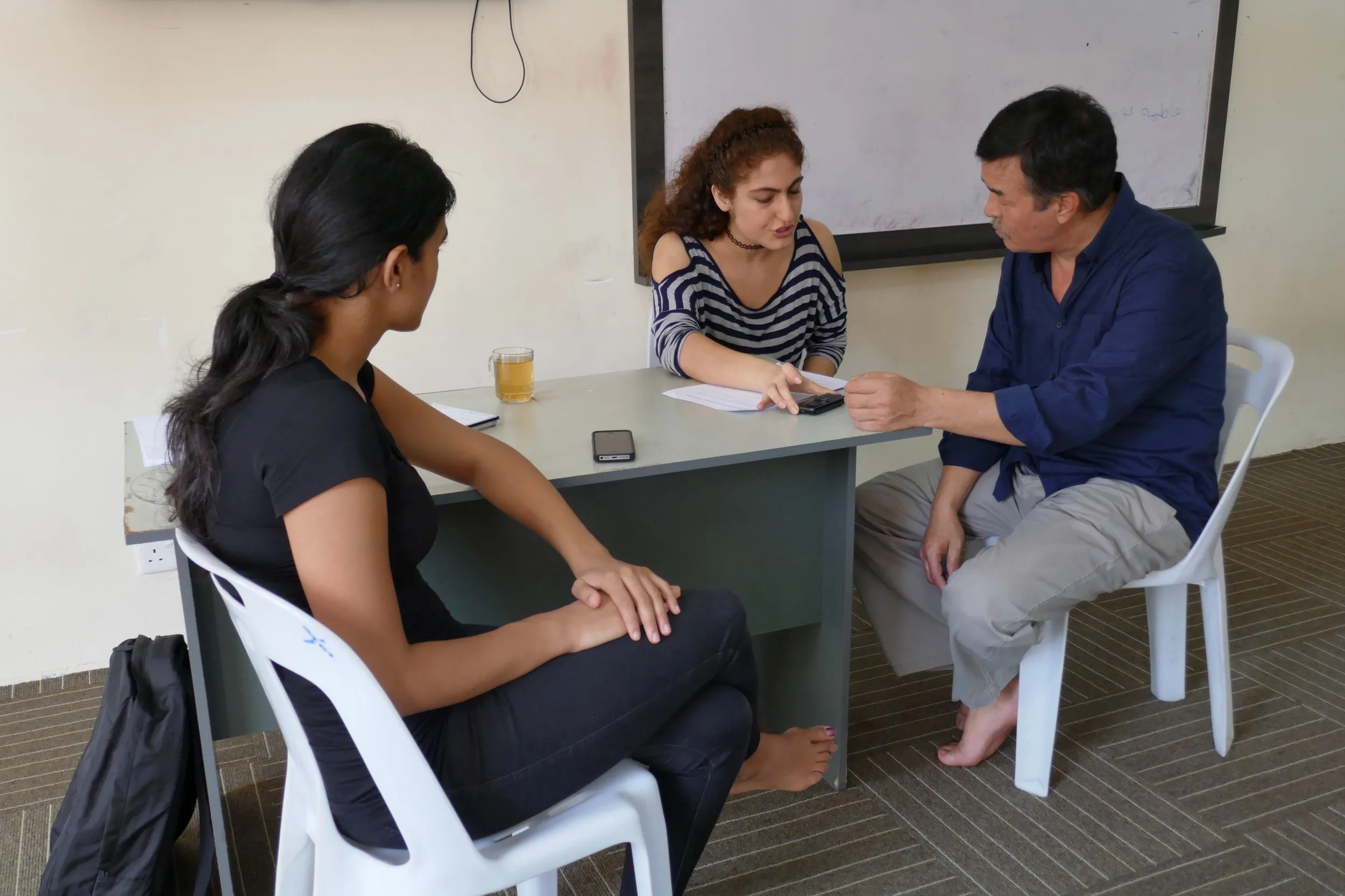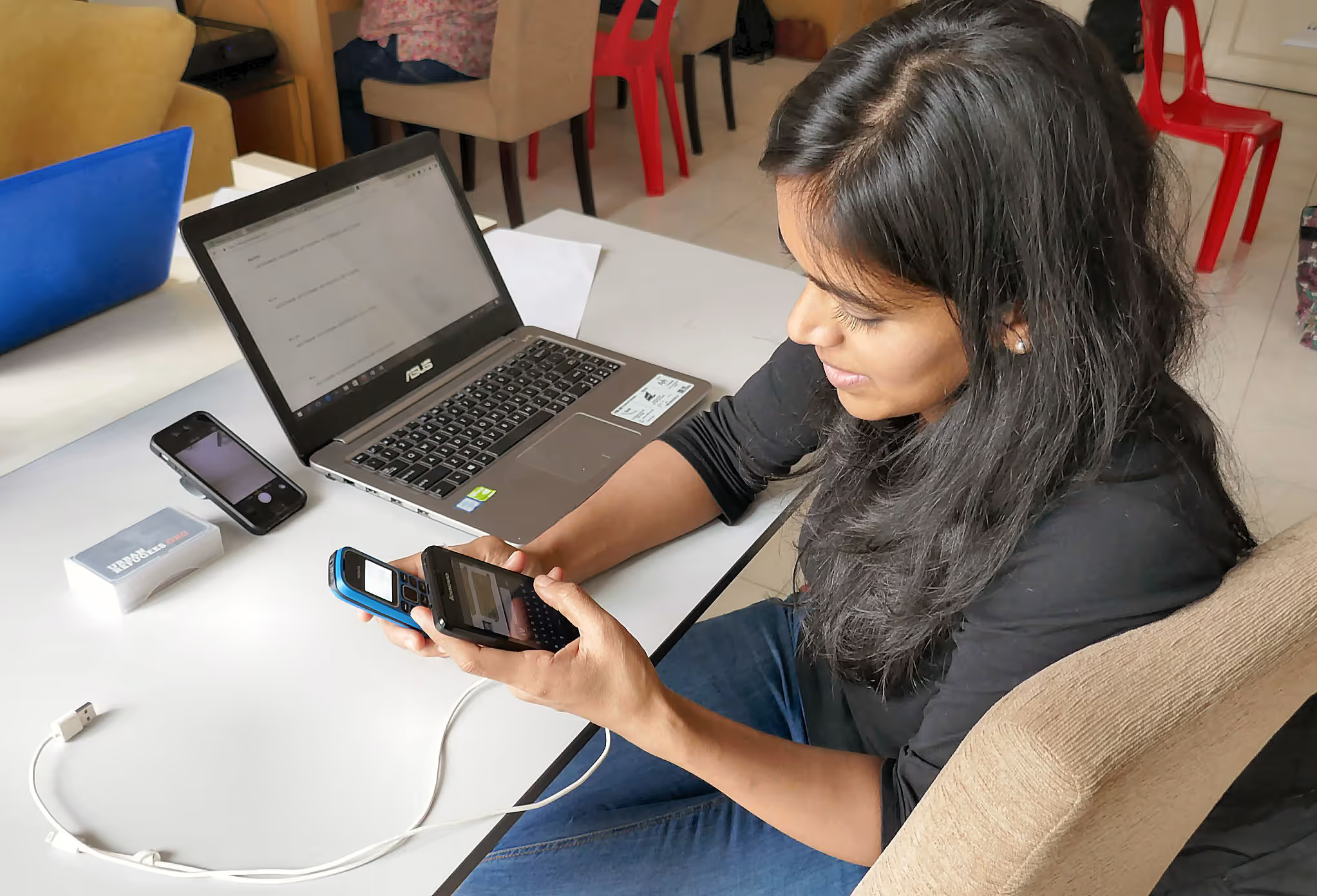SMS Up Changes Communications for Urban Refugees

The SMS Up project aims to create a paradigm shift in the challenging communication reality today’s global refugees face. In the developing world, many refugees lack access to consistent internet connectivity, which prevents them from utilizing common communication channels like WhatsApp and Viber. As many refugees exchange essential information in groups on these messaging platforms, those without access miss out on critical messages from their community—including information about available services, job opportunities, travel routes, or other crucial tips, including updates from UN agencies and relief organizations.
For them, SMS text messaging is a lifeline. Because of technological limitations, however, refugees have been unable to communicate as groups using SMS, making it difficult to self-organize or to communicate time-sensitive information at any significant scale. Until now. The URBAN REFUGEES team implemented the SMS Up pilot project with two refugee-led community-based organizations (CBOs): the Afghan Community Center (ACC) and the Somali Refugee Centre (SRC), both based in Kuala Lumpur, Malaysia. SMS Up was part of the URBAN REFUGEES Incubation Project, a 6-month collaboration with refugee CBO leaders to strengthen their capacity to serve their communities.

Members of the ACC and SRC communities with either a feature phone (non-smartphone), or a smartphone without consistent internet connectivity, were given access and trained in the use of the SMS Up application. The aim of this project was to extend the capability of CBOs to self-organize by helping them connect more effectively with their community members.
One essential feature of the SMS Up application is that it enables two-way communication among users, meaning that community members can not only communicate directly with one another, but also have direct access to their CBO leaders. One member of the SRC gave an example of how he used SMS Up on a feature phone during the testing phase to warn community members about police who were seen in the SRC’s condominium garden arresting young men. These kinds of alerts are critical for community members to receive in a timely fashion, particularly within refugee communities which are often targeted by law enforcement.

Overall, the project was a success. 100% of respondents reported that the app worked well. Interviews revealed responses including “It’s like a newspaper—It’s good because it works without data and we can ask [CBO] leaders questions also,” and “You can be sure everyone got the message.” Accordingly, 100% of respondents confirmed that they could see themselves using the SMS Up service long term. Additionally, 88% of respondents also reported that this service not only served as an information source, but also served to strengthen their relationship with the CBOs themselves, a central part of their community.
One leader of the ACC reflected that SMS Up enabled inclusion of a particularly vulnerable group within their community: “There is a group of ACC people, the elderly, who use feature phones and no internet. We really value the elderly here. Previously, we only reached them through word of mouth and the news would be ‘half-baked.’ Now there is one version of the truth directly from me to them. Even those who cannot read can show their children the message and ask them to translate.”

The most common threads of information on SMS Up included: available housing, food distribution, community meetings, class times, UNHCR updates, job opportunities, prayers and events, and job opportunities. By the end of the program, leaders estimated they were able to reach at least 88% of CBO members with SMS UP.
During this pilot project, SMS Up did encounter some challenges. The application was not only developed in English, but also in Somali for the fuller benefit of the SRC. There were also attempts to develop the application in Farsi for the ACC. However, nuances of the language proved challenging to reflect in text, and in the end, only the commands were fully translated to Farsi.
Another challenge was the inability to offer free the application free of charge to users--while SMS Up itself came at no charge, users were responsible for the cost of SMS text messages by their carriers, which we believe was a significant barrier to uptake. Additionally, we believe that commitment on behalf of CBO leaders will have a direct impact on uptake my community members. Low engagement from leaders was particularly the case with the ACC, which resulted in a smaller implementation compared to SRC.
A pilot test among 124 users, with 26 open groups (as of August, 2017) included over 2000 messages and consistently positive feedback from users. The URBAN REFUGEES team hopes to build on the success of this pilot program. Through these two organizations alone, we will have the capacity to reach over 1000 beneficiaries--and we hope this is only the beginning.
Stay updated
Sign up for our newsletter to receive regular updates on resources, news, and insights like this. Don’t miss out on important information that can help you stay informed and engaged.
Related articles


.png)
Explore Elrha
Learn more about our mission, the organisations we support, and the resources we provide to drive research and innovation in humanitarian response.